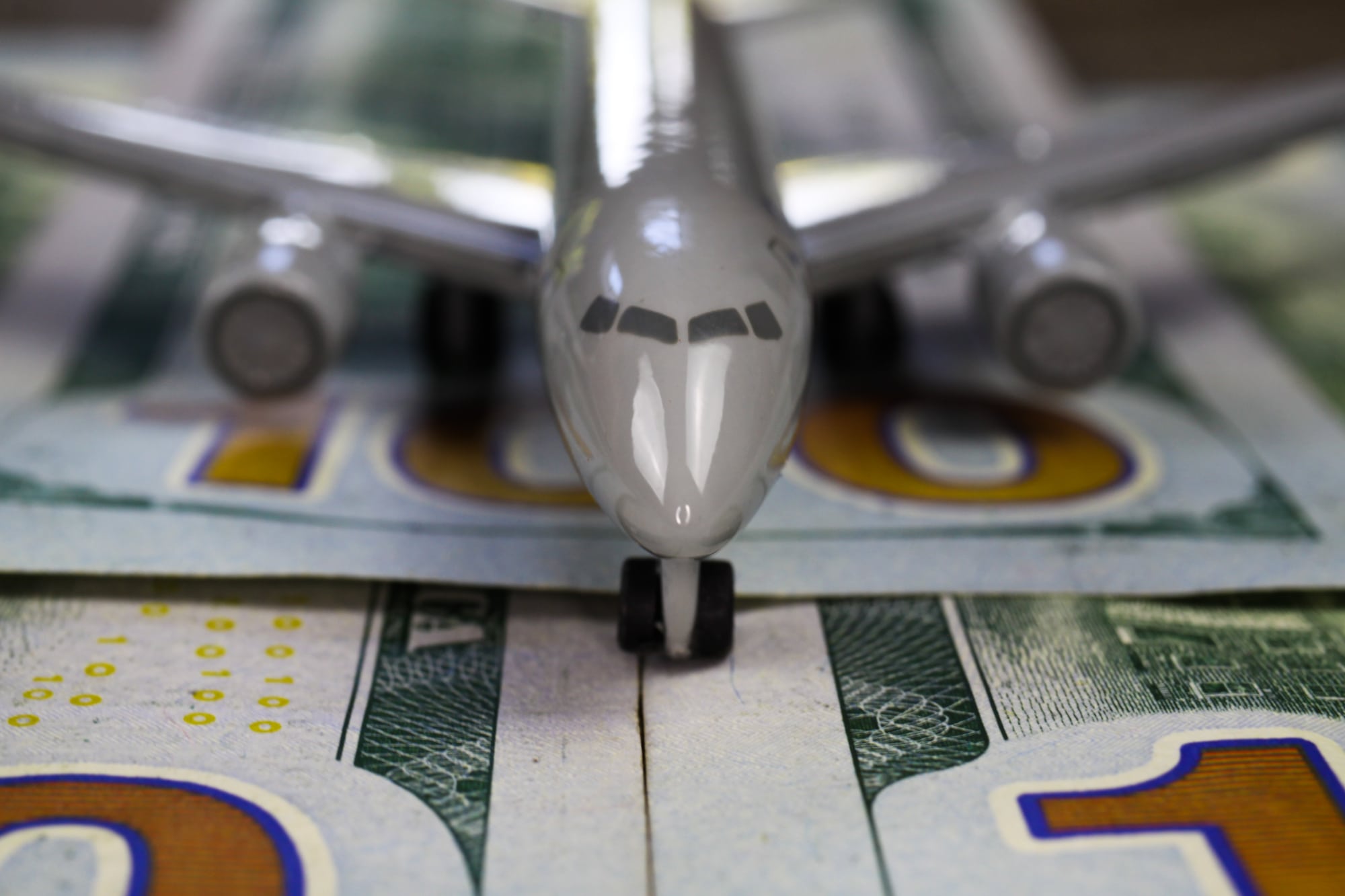With summer travel plans in full swing, people are looking for inexpensive flights and smooth processes to get them to their holiday destinations. If you’re flying domestically or even internationally between the U. S. and Canada, you might be in for a surprise when you check your flight booking totals.
That’s because many airlines tack on additional charges called carrier-imposed fees onto your bill.
Many major U. S. airlines like Delta or American won’t tell you what these fees cover. This can leave travelers in the dark about extra fees that can boost their total trip cost by hundreds of dollars. This means that even free awards flights can end up costing you a pretty penny.
Here’s what you need to know about carrier-imposed fees, refundable charges, and how to avoid fuel surcharges in some cases.
Table of Contents
What Are Carrier-Imposed Fees?
Before you complete your airfare booking, you might see various charges, fees, and taxes start to pile up. These fees come from taxes, duties, and fuel charges imposed by most major and minor U.S. and international airlines.
According to Delta Airlines, these carrier-imposed fees are lumped into a bland, non-specific category that includes “airline charges, government taxes and fees, and carrier-imposed surcharges.”
This can leave people wondering if they are literally paying for their own jet fuel or just lining the corporation’s pockets.
In a nutshell, carriers have charged these fees for decades because it helps airlines make money.
You May Also Like: Boarding Time vs Departure Time – What’s the Difference?
Why Do Airlines Charge Carrier-Imposed Fees?
When the price of oil, linked to airplane fuel, shot up decades ago, airlines decided to add fuel surcharges to customers’ tabs to offset the extra costs associated with fueling airplanes. When oil prices dropped, however, those pesky fees lived on.
Today, some airlines always charge these fees, some only add them in specific cases, while others don’t charge them at all. Even if you don’t see a surcharge listed on your bill, that doesn’t mean that you are in the clear.
Most airlines don’t refer to these fees as “fuel surcharges” anymore because that requires the airline to offer fee transparency and calculate the actual fuel cost for the customer.
Instead, they label the fees together under a blanket term: “carrier-imposed fees”.
It’s one of the ways that airlines make money, just like unbundled airfares or charging for everything from seat placements to baggage.
How Much Are Carrier-Imposed Fees?
Carrier-imposed fees can vary widely depending on the destination, trip cost, and carrier.
For example, American Airlines charges a 7.5% U. S. government excise tax for domestic travel. For U. S. domestic and international flights, Delta charges a standard 7.5% excise tax.
Some of these fees include Travel Facilities tax ($9.90), U. S. Federal Segment Fee ($4.50), Passenger Facility Charge (up to $4.50), September 11th Security Fee ($5.60 per a one-way trip per U. S. flight), U. S. International Transportation (for arrival/departure) Tax ($19.70), U. S. Customers User Fee ($6.11), and separately stated carrier-imposed surcharges (up to $650 each way).
Are They Refundable?
Most carrier-imposed fees aren’t refundable unless the airline policy allows refunds. For example, if a ticket is nonrefundable, that applies to the fees as well. But many airlines offer cancellation protection terms for carrier-imposed fees.
It all depends on the airline.
According to American Airlines, for instance, you can submit a written request about refunds for taxes and fees specific to destinations. It states on their website refund policy that “if American has an obligation to pay (these taxes or fees) regardless of travel,” the airlines won’t refund them.
Some airlines might offer refunds for certain fees and taxes under certain circumstances, so it’s always best to check with your airline about their specific refund policy for carrier-imposed fees.
You May Also Like: American Airlines Paper Voucher: What You Need to Know
How to Avoid Carrier-Imposed Fees
Savvy travelers can skip paying these extra fees by flying on an airline that doesn’t do fuel surcharges or carrier-imposed fees.
You can also keep fees low by departing from a country that has a limit on fuel surcharges or booking via an airline mileage program that doesn’t charge these fees. Some airlines that impose carrier charges also waive these for rewards flights.
If you need to fly with an airline that doesn’t waive these fees, it’s a good idea to estimate the charges in advance and plan to budget for these costs in advance.
Which Airlines Don’t Charge Carrier-Imposed Fees?
There are currently several airlines that don’t charge regular carrier-imposed surcharges or fuel fees.
United Airlines remains one of the few airlines that doesn’t charge extra fees such as change fees or fuel surcharges. This applies to both United flights, Star Alliance, or any partner flights.
Others such as Allegiant Allways, Avianca LifeMiles, Frontier Airlines Frontier Miles, JetBlue TruBlue Points, Southwest Airlines Rapid Rewards, and United Airlines Mileage Plus don’t apply surcharges or carrier-imposed fees to awards.
Carriers like France, Asiana Airlines, Japan Airlines, Emirates, Iberia, Cathay Pacific, and All Nippon Airways often offer reasonable carrier-imposed fees for destination-specific locations.
Final Thoughts
Before you book your next flight, you can avoid pricy surprises and skip or reduce these fees by flying with airlines that charge lower fees or have abolished them.
Even though many airlines include carrier-imposed fees, they also offer top-notch services and a wide variety of flights to both domestic and international destinations that might make it worth your while.

